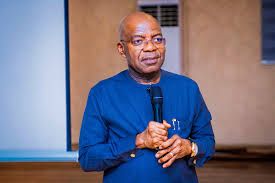
Vice-President Kashim Shettima has announced a comprehensive overhaul of Nigeria’s road safety measures aimed at significantly reducing traffic accidents across the country.
During a meeting with the leadership of the Federal Road Safety Corps (FRSC) at the Presidential Villa in Abuja, Shettima emphasized the urgent need to tackle the rising number of road accidents on Nigerian highways.
As part of this initiative, Shettima is set to inaugurate the National Road Safety Advisory Council, tasked with the ambitious goal of reducing traffic accidents by 50% before the year 2030. He underscored the necessity for the FRSC to confront its challenges head-on and to enforce adherence to traffic regulations more effectively.
“We need a comprehensive solution for our road safety challenges. The whole ecosystem is not as it should be,” Shettima stated, calling for a systematic approach to improve road safety in alignment with international best practices observed in countries like Dubai and the UK.
Highlighting the role of technology in enhancing road safety, the Vice-President noted, “In places like Dubai and the UK, there are mechanisms in place to capture traffic violators’ car number plates and charge them directly from their bank accounts. This encourages law compliance.” He stressed the importance of fostering a disciplined national ethos to ensure road safety.
Shettima pointed out the interconnectedness of road safety with broader security issues, stating, “The FRSC’s role is intertwined with that of the Nigerian Police, as it forms part of the nation’s security architecture.” He praised the Enugu state government’s efforts in establishing a security framework that encompasses the entire state, including its forest areas.
FRSC Corps Marshal Shehu Mohammed elaborated on the significance of the National Road Safety Advisory Council, which is a key component of the updated Nigeria Road Safety Strategy 2021-2030. “The aim is to reduce road traffic crashes by 50% between now and 2030,” he stated.
The council will include six governors representing each of Nigeria’s geopolitical zones, along with ministers, the National Security Adviser, and the President of the Association of Local Government of Nigeria (ALGON).
It’s primary functions will encompass setting national road safety targets, coordinating efforts among federal, state, and local governments, and overseeing the implementation of strategic initiatives to enhance road safety across the nation.






I love you guys
Thank you. We appreciate you more